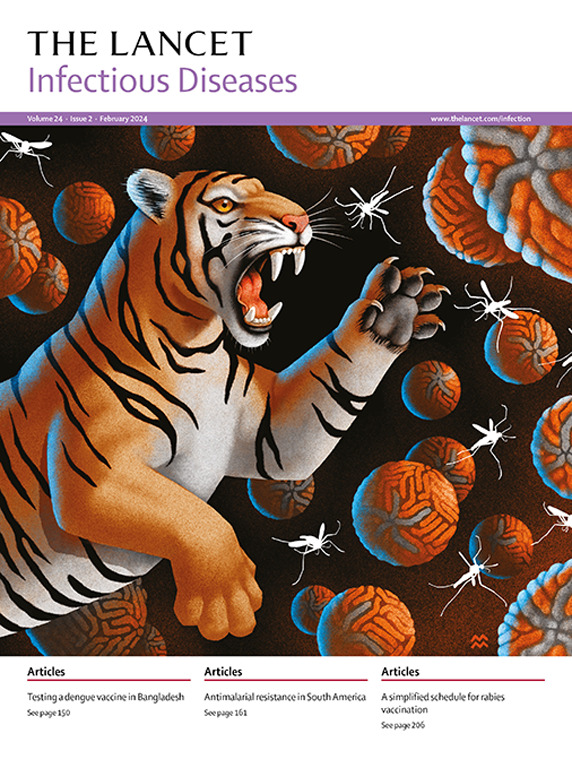Targeting the SARS-CoV-2 reservoir in long COVID
IF 36.4
1区 医学
Q1 INFECTIOUS DISEASES
引用次数: 0
Abstract
There are no approved treatments for post-COVID-19 condition (also known as long COVID), a debilitating disease state following SARS-CoV-2 infection that is estimated to affect tens of millions of people. A growing body of evidence shows that SARS-CoV-2 can persist for months or years following COVID-19 in a subset of individuals, with this reservoir potentially driving long-COVID symptoms or sequelae. There is, therefore, an urgent need for clinical trials targeting persistent SARS-CoV-2, and several trials of antivirals or monoclonal antibodies for long COVID are underway. However, because mechanisms of SARS-CoV-2 persistence are not yet fully understood, such studies require important considerations related to the mechanism of action of candidate therapeutics, participant selection, duration of treatment, standardisation of reservoir-associated biomarkers and measurables, optimal outcome assessments, and potential combination approaches. In addition, patient subgroups might respond to some interventions or combinations of interventions, making post-hoc analyses crucial. Here, we outline these and other key considerations, with the goal of informing the design, implementation, and interpretation of trials in this rapidly growing field. Our recommendations are informed by knowledge gained from trials targeting the HIV reservoir, hepatitis C, and other RNA viruses, as well as precision oncology, which share many of the same hurdles facing long-COVID trials.求助全文
约1分钟内获得全文
求助全文
来源期刊

Lancet Infectious Diseases
医学-传染病学
CiteScore
60.90
自引率
0.70%
发文量
1064
审稿时长
6-12 weeks
期刊介绍:
The Lancet Infectious Diseases was launched in August, 2001, and is a lively monthly journal of original research, review, opinion, and news covering international issues relevant to clinical infectious diseases specialists worldwide.The infectious diseases journal aims to be a world-leading publication, featuring original research that advocates change or sheds light on clinical practices related to infectious diseases. The journal prioritizes articles with the potential to impact clinical practice or influence perspectives. Content covers a wide range of topics, including anti-infective therapy and immunization, bacterial, viral, fungal, and parasitic infections, emerging infectious diseases, HIV/AIDS, malaria, tuberculosis, mycobacterial infections, infection control, infectious diseases epidemiology, neglected tropical diseases, and travel medicine. Informative reviews on any subject linked to infectious diseases and human health are also welcomed.
 求助内容:
求助内容: 应助结果提醒方式:
应助结果提醒方式:


